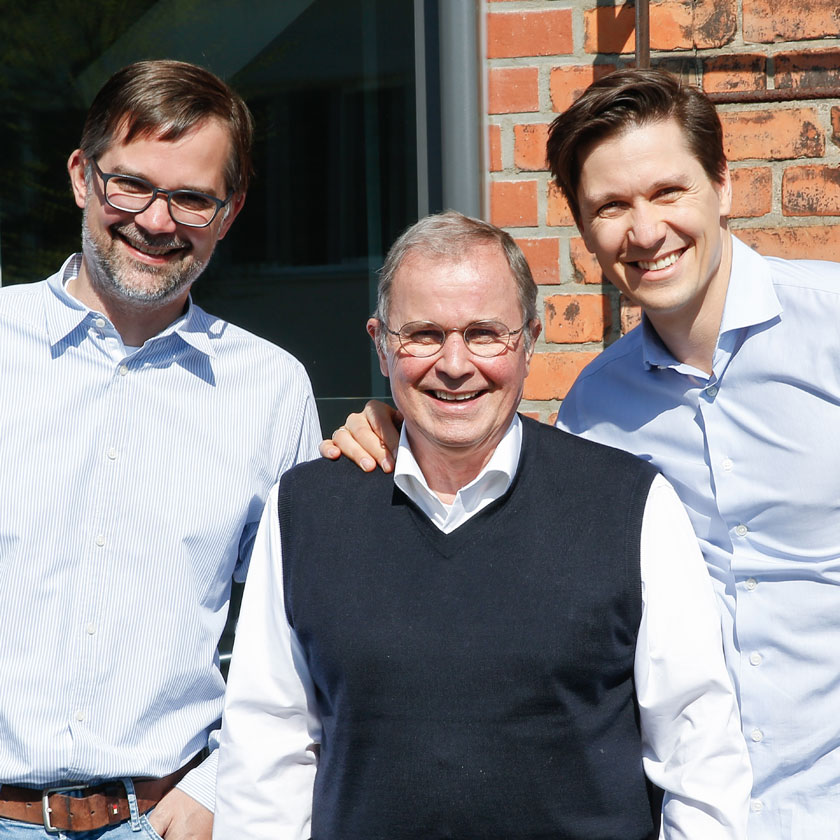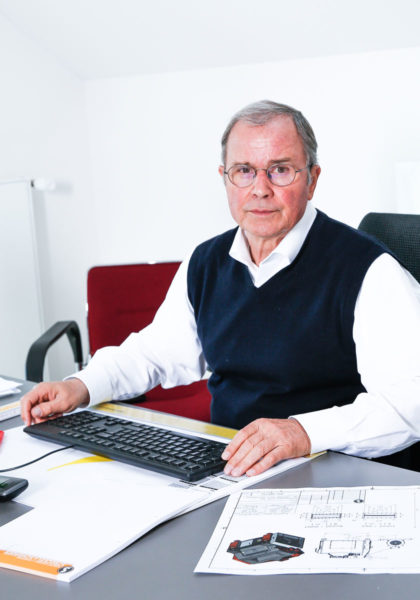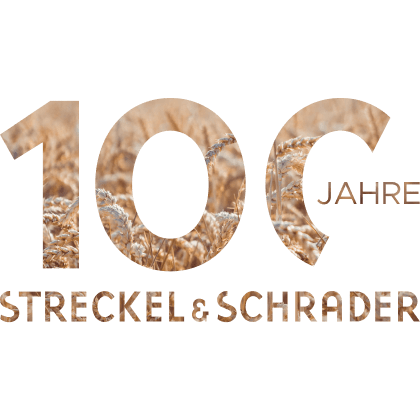History
We too stand for healthy growth
A seed of grain needs time to grow – and so does a sustainable company. For over 95 years, we have been working for you at our Hamburg location; in the region and all over the world.
Already looking towards the future back then

In 1923, the two senior engineers Franz Streckel and Karl Schrader founded our company. Before they immortalised their names with Streckel & Schrader KG, they studied with the major machine builders of their time. Just one year later, the company moved to Hinschenfelder Strasse 35 in Wandsbek – the address written on our letterhead to this day.
A particular entrepreneurial and innovative spirit was already evident in the early years after the company was founded. In 1930, the first complete processing system for rice was delivered to Rio Bravo, Brazil. At the time, it was an uncommon and unusually distant step.
Constant expansion in all directions
In 1976, Joachim Streckel took over the leadership of the dyed-in-the-wool family-owned company – and the company entered its third generation of ownership. But that wasn’t all: thanks to his expertise, experience both of a technical and commercial nature from various branches of industry, and years of experience dealing with customers from around the globe, he takes Streckel & Schrader to an entirely new level as a company.
In the very same year, the first machine for manufacturing cornflakes was delivered. In doing so, the product portfolio was expanded with another milestone. This is because today, when it comes to breakfast cereals, you can be sure that one of our machines was involved in the production process. Joachim Streckel also pushed for overseas expansion. Through him, business relationships were extended to South America and Australia.

“I have seen so many oat mills and built so many installations all over the world that our customers are able to benefit from this experience to this day.”
Joachim Streckel, CEO
Our future stands on a strong foundation
In 2011, the production floor in Hamburg was once again expanded and modernised. The products in our portfolio were also gradually overhauled. This was done to reconcile the experience of the past decades with the technical achievements the present day. Because with the brothers Tobias and Florian Streckel, the fourth generation is not just helping out in the company. They are also driving digitalisation within the company’s own processes.
This not only applies to digital inventory control systems, but also to the areas of planning and design. Via CAD systems, machines and systems can be planned more efficiently and implemented more comprehensively – namely as an overall concept including control system. A restructuring and reorientation that pays off: In 2015, Streckel & Schrader built the largest oat mill in the southern hemisphere in Australia. Whether it is global players or smaller hulling mills in the organic segment – even today, our company continues to be the preferred point of contact when it comes to special milling needs.
In 2021, the company’s second production site in Lutherstadt Wittenberg successfully commenced operations. A strong local supplier network has also been established in Wittenberg. The extensive and high-quality machine tool fleet also allows for a high degree of vertical integration and flexibility at the Saxony-Anhalt site.
The photovoltaic system installed in 2022 allows the Wittenberg site to operate sustainably at its current capacity. As part of our commitment to sustainability, currently unused areas of the property are being used as an environmentally friendly wildflower meadow.
Tobias Streckel, CEO


